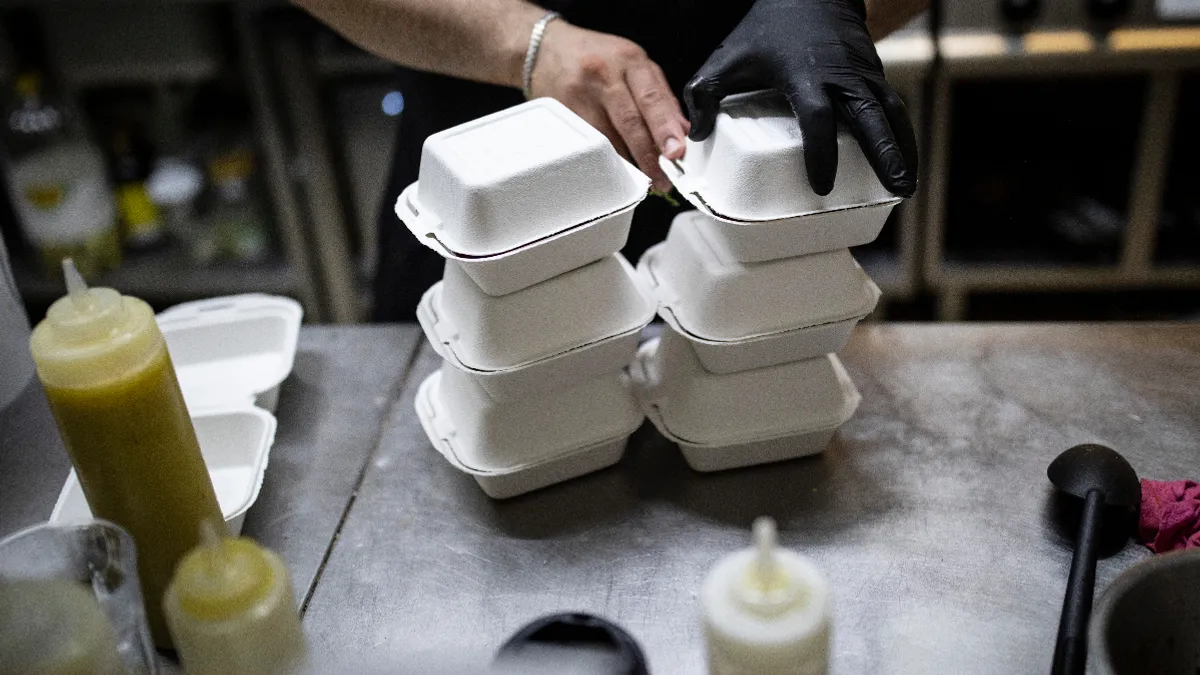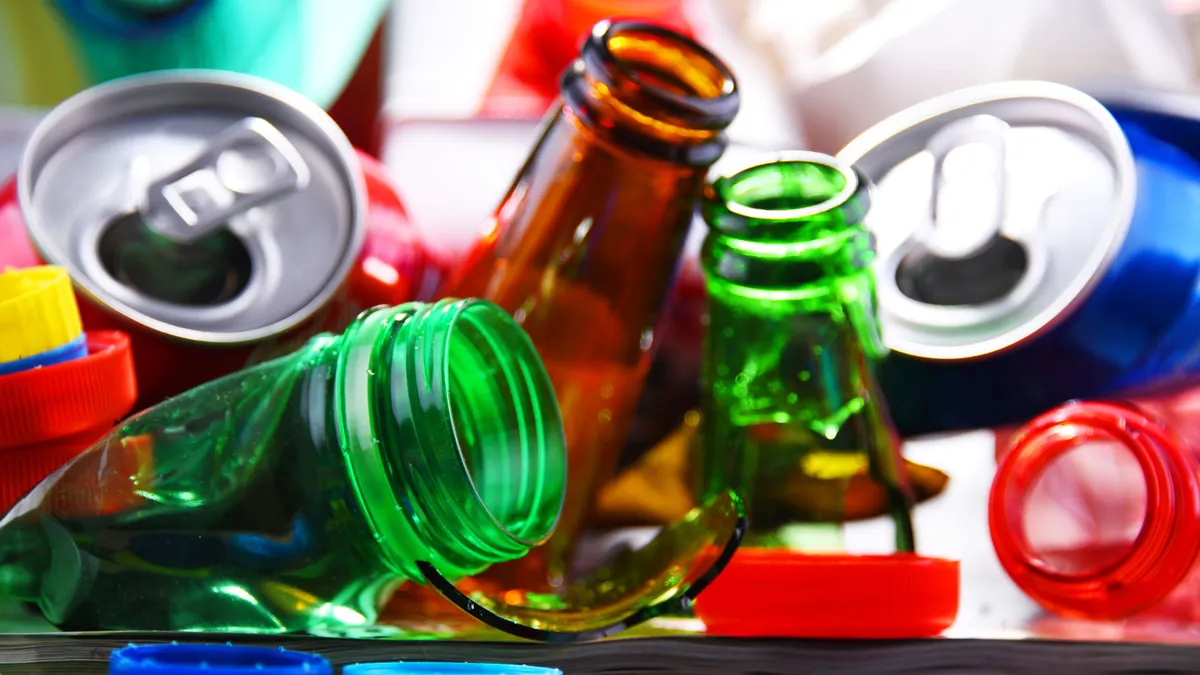Linda Pouliot is co-founder and CEO of Dishcraft, a San Carlos, California-based reusable dishware delivery service.
Food service, convenient and often delicious, remains a massive source of waste.
Some reports show the industry uses nearly 1 trillion disposable foodware items annually, leading to 9 million tons of waste. And that’s pre-pandemic. More recent studies show this has only increased, with estimates at one point indicating residential trash rose more than 25% during the start of the COVID-19 pandemic in some areas. The problem is abounding and the solution is complex.
Top environmental experts agree that our global waste crisis cannot be solved by recycling alone. Americans recycle just 32% of their municipal waste, therefore the majority of waste still ends up getting disposed. Because recycling and composting are clearly not complete solutions, world leaders, corporations and consumers must focus on transitioning to a reuse or “circular” economy to ensure significant, long-term reductions of both new packaging production and international waste streams.
As millennials and members of Generation Z pick up this movement en masse, they are applying concerted pressure on world leaders to step up their participation. For example, last year's Presidential Plastics Action Plan proposed the Biden administration enact a moratorium on new "garbage incinerators," along with sunsetting existing sites and closing ash landfills. Initiatives are also gaining momentum in calling on Biden to put an end to government buying of single-use plastic products and shifting toward reusable items.
Unfortunately, the infrastructure needed to support a sustainable circular economy on a global scale simply does not yet exist. Successfully achieving this critical first stage will naturally depend on multiple stakeholders collaborating toward a common goal.
California, representing one of the world’s largest economies, offers an excellent example of the challenges with building a circular economy from the ground up. Renowned for its pioneering automotive emissions initiatives, California has taken several steps in the right direction, particularly in addressing the foodware and food packaging environmental crisis. State legislated waste reduction initiatives, such as AB 1276 and SB 1383, establish an important framework, but present implementation challenges while failing to close the loop on reuse.
Waste and recycling regulations are administered by the state agency CalRecycle, but actually implemented through local governments and waste management providers, each of which have their own processes, guidelines and procedures.
Many local governments and haulers provide broad community or end-user education programs, but these can often be confusing and frequently don’t reach the largest waste producers directly — particularly corporations. The implementation is also complicated by the fact that waste management companies have a financial incentive to haul material regardless of its final destination, which can serve to prop up ineffective recycling programs rather than promote the decline of all waste streams.
These types of laws, while well-intentioned, do not go far enough in establishing a solid reuse infrastructure. It is incumbent on citizens and corporations to pressure lawmakers into drafting and passing more effective waste-reduction laws (imagine a reuse bin next to the landfill, recycle and compostable bins). When cities support these efforts, the collection and logistics are possible to make reuse a reality.
Reuse is not only necessary, it works. Proven systems — like Straus Family Creamery’s model in which milk bottles in northern California are returned, sanitized and recirculated — have created stable pricing and helped the company thrive through difficult times. In India, patrons return tiffins (carry out boxes) to restaurants, where they are cleaned and refilled. This success has spread to Philadelphia’s own tiffin restaurant, which introduced its reusable container program last spring.
While these examples are promising, reuse must evolve into part of our culture as the first priority, with recycling being relegated as a last resort. To achieve this with any degree of success, we must focus on fundamentals:
- Educate consumers and businesses on the easily reducible items (napkins, utensils, straws, plastic bottles, etc.) and how to reuse other items.
- Implement widespread initiatives, making collections bins available at multiple urban reuse drop-off locations (grocery stores, restaurants, parks, etc.).
- Incentivize vendors to install collection systems at their locations.
- Alter consumer behavior by placing a small fee on disposable items, similar to California’s plastic bag fee; or incentivize individuals with bonus programs (percentage off next meal or product/service add-on) when they return reuse items.
- Implement centralized facilities to sort, clean and sanitize items, as most small businesses lack the resources to safely handle reuse items. Most quick-service restaurants, for example, do not have space to wash, sanitize and dry reusable foodware.
Effective, sustainable reuse programs also require knowledgeable, committed participation from businesses, venues and local governments. Not surprisingly, many organizations lack awareness of the most effective ways to reduce waste or fail to support employee or guest participation in the reuse cycle. These are exactly the grassroots issues that must be addressed to inspire a successful worldwide transition to a circular economy.
Reuse companies must lead the way in providing not only environmentally friendly products and services, but also by educating and guiding other enterprises in actively participating in building the circular economy. Introducing effective reuse products to a niche market is one small piece in a giant puzzle. Completing the global reuse puzzle will be a generational movement that begins with today’s innovators and policymakers leading the way with a clear regulatory framework that supports implementation and participation.
Contributed pieces do not reflect an editorial position by Waste Dive.
Do you have an opinion on this issue, or other topics we cover? Submit an op-ed.


















